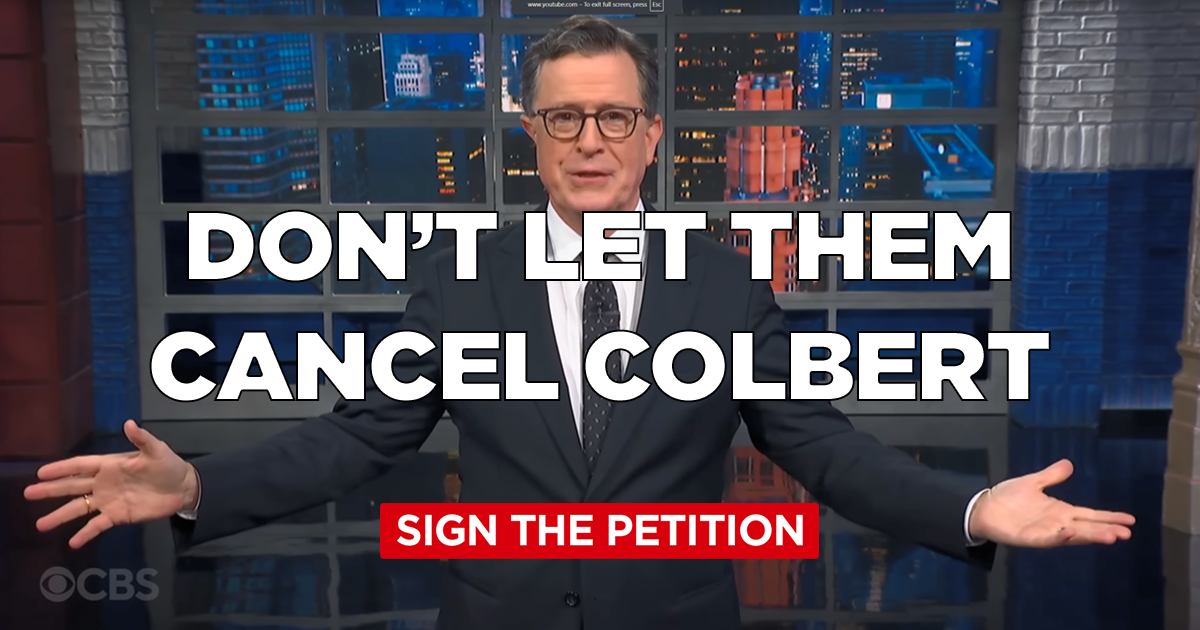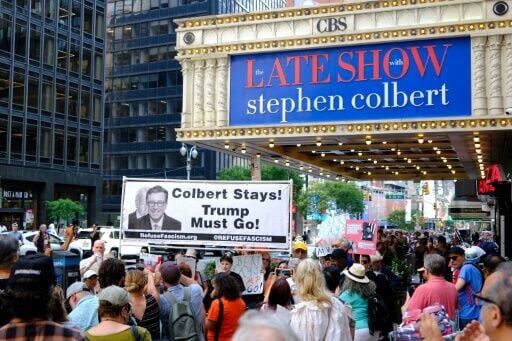In a wave of public outcry, over 200,000 people have signed petitions urging CBS to reconsider its decision to cancel The Late Show with Stephen Colbert, a staple of late-night television for over three decades. The announcement, made on July 17, 2025, has sparked widespread controversy, with fans, activists, and even fellow comedians accusing CBS and its parent company, Paramount Global, of succumbing to political pressure. The decision to end the show in May 2026, after a decade under Colbert’s stewardship, has raised questions about free speech, corporate influence, and the future of late-night television in an increasingly polarized media landscape.
The backlash began almost immediately after CBS confirmed the cancellation, with multiple petitions emerging across platforms like Change.org, MoveOn.org, and SaveColbert.org. Collectively, these petitions have garnered significant support, with a single petition hosted by the Progressive Change Campaign Committee (PCCC) alone amassing over 120,000 signatures by July 23, 2025. Another petition on MoveOn.org collected more than 67,000 supporters, while dozens of smaller petitions on Change.org contributed to the total count surpassing 200,000. By late July, reports indicated that the number of signatures had climbed to 250,000, reflecting the depth of public sentiment.

The timing of the cancellation has fueled accusations of political motivations. Just days before the announcement, Colbert sharply criticized Paramount Global for settling a $16 million lawsuit with President Donald Trump over a 60 Minutes interview with former Vice President Kamala Harris. On air, Colbert called the settlement a “big, fat bribe,” linking it to Paramount’s efforts to secure Federal Communications Commission (FCC) approval for a multi-billion-dollar merger with Skydance Media. This merger, critical to Paramount’s financial strategy, has led many to speculate that CBS’s decision was influenced by a desire to avoid antagonizing the Trump administration.
The petitions reflect a shared belief that the cancellation is not purely financial, as CBS claims, but rather a response to political pressure. The PCCC petition, for instance, cites a quote from comedian Jon Stewart, who described the cancellation as emblematic of “the fear and pre-compliance that is gripping all of America’s institutions at this very moment.” Supporters argue that The Late Show serves as a critical voice in American media, blending humor with incisive political commentary. One petitioner, Kennedy from Carleton, wrote, “Colbert’s turn of phrase and sense of humor has helped me to keep a positive outlook since I started watching during the 2016 election season.” Another, Arlene from Savannah, GA, shared a personal story, noting that watching Colbert with her late husband provided solace and laughter during difficult times.

CBS, however, has maintained that the decision stems from financial challenges in the late-night advertising market. George Cheeks, Chair of TV Media at Paramount, emphasized that the show was losing “tens of millions of dollars” annually, with some sources estimating losses as high as $40 million per season. Cheeks also pointed to a broader decline in the late-night television market, noting that the cancellation of After Midnight, hosted by Taylor Tomlinson, further underscored the unsustainable economics of the format. Despite these claims, the timing—coming just three days after Colbert’s “bribe” comment—has led to skepticism, with figures like Senators Elizabeth Warren and Adam Schiff questioning whether the decision was politically motivated.
The public response has extended beyond online petitions. On July 23, 2025, the PCCC organized a rally outside the Ed Sullivan Theater in Manhattan, where The Late Show is filmed. Demonstrators marched to Paramount’s headquarters in Times Square to deliver boxes containing petition signatures, chanting “Save Colbert” and holding signs condemning CBS’s decision. The rally highlighted not only the show’s cultural significance but also its economic impact, with local businesses near the theater expressing concerns about losing customers who visit after tapings. Akhil Reddy, a worker at a nearby gift shop, noted that 20% of their tourist traffic comes from The Late Show audience.

Fellow late-night hosts, including Jimmy Fallon, Seth Meyers, John Oliver, and Jon Stewart, have voiced support for Colbert, with some appearing on his show to mock the situation. A recent episode featured a satirical sketch depicting an animated Trump embracing the Paramount logo, a nod to the perceived corporate capitulation. Meanwhile, social media platforms like X have buzzed with reactions, ranging from outrage to skepticism. Some users, like @JohnDiLillo, argued that the cancellation was a direct response to Colbert’s criticism of Trump, while others, like @sanelofi, suggested it was tied to contract disputes rather than politics.
The cancellation of The Late Show marks the end of a franchise that began in 1993 under David Letterman and has been a cornerstone of CBS’s programming. With over two million nightly viewers, it remains the top-rated late-night show, making the decision all the more contentious. Critics argue that silencing a voice like Colbert’s, known for its sharp critique of political figures, could have a chilling effect on free speech. As one petition signer put it, “Everyone deserves to have a voice, regardless if we agree or disagree with what that voice says.”
As the May 2026 deadline approaches, the growing petition numbers and public demonstrations signal that the fight to save The Late Show is far from over. Whether CBS will bow to public pressure or proceed with the cancellation remains uncertain, but the controversy has already sparked a broader conversation about the role of media in a democratic society.